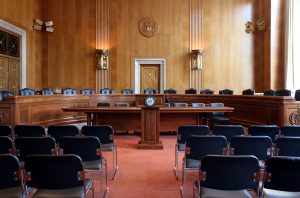Excerpt:
Senator McCain: The committee will receive testimony on the Department of the Interior’s management
of the Tribal Self-Governance Program. For many, it is hard to imagine that just a little over 30 years ago, the Federal Government was the sole provider of all or nearly all essential governmental services to Indian tribes and their members, including police, fire, education, and health care services in Indian country.
In 1975, Congress enacted the Indian Self-Determination and Education Assistance Act, Public Law 93-638. Since then, Congress has increasingly authorized Indian tribes to manage Federal programs and assume control over their own affairs. Tribal self-governance aims to foster strong tribal governments and healthy reservation economies as mechanisms to further tribal government.
Encouraged by the opportunities available under the act to operate and shape BIA programs to be more responsive to their community needs, Indian tribes across the country actively sought to contract and compact with the BIA. As more tribes assumed control over their own affairs, there has been a corresponding reduction in the Federal bureaucracy and an improvement in the quality of
services delivered to tribal members.
Recently, however, many tribes have been reluctant to enter into new contracts or to expand their current contracts and compacts. Some tribes have even begun to retrocede contracts as authorized
under the act. This hearing will provide an opportunity for the department and invited tribal witnesses to offer their views and comments on these trends, and possible suggestions for resolving these challenges.
